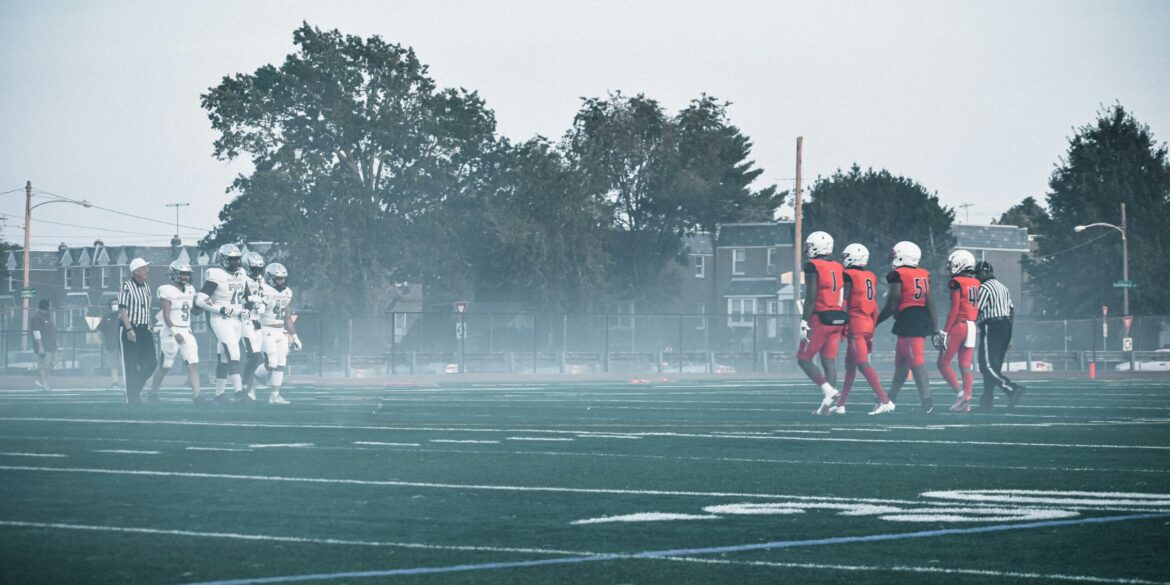ESPN’s College GameDay set up on the campus of the University of Miami on Saturday, September 20, where Hurricanes fans flocked well before dawn to take part in the nationally televised pregame spectacle ahead of Miami’s prime-time showdown with the Florida Gators. The broadcast, staged at the university’s Lakeside Patio, marked one of the season’s most anticipated stops for the long-running college football show and underscored the significance of a rivalry that stretches far beyond the field.
Fans began lining up as early as 5 a.m., carrying homemade signs, chanting fight songs, and donning the orange and green to ensure their presence was felt on camera. Student groups gathered across campus to set the tone, while alumni and longtime supporters hosted tailgates that blended seamlessly with the broadcast festivities. By mid-morning, the energy had built into a full-throttle celebration of Miami football, with crowds spilling over into adjacent areas and creating a festival-like atmosphere that lasted until kickoff at 7:30 p.m. Eastern at Hard Rock Stadium.
As always, the College GameDay crew delivered a mix of analysis, fan interaction, and celebrity interviews to energize the crowd. The program featured appearances from former Hurricanes players, segments on Miami’s storied football history, and interviews with top recruiting prospects considering both Miami and Florida. Analysts broke down the matchup in detail, debating Miami’s offensive efficiency against Florida’s defensive schemes and weighing whether the Gators’ struggling offense could find its footing against an undefeated Hurricanes team. The traditional sign-making contest among fans was in full display, with playful jabs traded at both programs, while chants of “The U” reverberated through the campus throughout the morning.
Read Also: https://miamihighlight.com/mlw-brings-the-mystical-don-gato-persona-to-life-at-fightland-2025/
For ESPN, the decision to spotlight Miami reflected both the resurgence of the Hurricanes and the national attention drawn by an in-state rivalry. With Miami entering the game undefeated and ranked inside the top 10 of the AP poll, and Florida facing mounting pressure after a slow start to its season, the stakes could hardly have been higher. A Miami win promised to solidify its place as a College Football Playoff contender, while Florida sought a statement victory to turn momentum around. The broadcast framed the game as not only about bragging rights in Florida but also as a battle with national implications.
The Miami-Florida rivalry carries weight well beyond the current season. Though the teams do not meet annually due to conference alignments, when they do clash, the game captures the attention of fans statewide and across the college football landscape. Their history stretches back more than a century, with each matchup renewing debates about which program carries the banner as Florida’s flagship football school. For Hurricanes fans, the chance to host College GameDay was more than just pregame entertainment—it was a recognition that their program had returned to relevance on the national stage.
Students and alumni alike embraced that recognition. Lakeside Patio was draped in Miami colors, and the scene carried a carnival-like atmosphere with music, food trucks, and marching band appearances punctuating the broadcast. Campus organizations joined in, holding up banners and coordinating cheers that alternated between celebrating the Hurricanes’ fast start to the season and taunting their rivals from Gainesville. For younger fans and first-time attendees, it was an introduction to the cultural phenomenon that GameDay has become, while for longtime supporters, it was a reminder of the program’s storied past and hopes for a championship future.
As kickoff approached, the momentum from GameDay carried into tailgates at Hard Rock Stadium, where both fan bases gathered in large numbers. Florida supporters traveled in significant contingents, determined to make their voices heard despite Miami’s home-field advantage. The lead-up created a charged atmosphere, with national media emphasizing the game as a turning point for both programs: a validation of Miami’s rise under its current leadership or a possible reset moment for a Florida team struggling to meet expectations.
The broadcast also served ESPN’s broader goals of amplifying storylines that resonate nationwide. Miami’s undefeated start and potential to contend in the College Football Playoff picture created a compelling narrative, while Florida’s need for a rebound offered drama of its own. By broadcasting from Coral Gables, ESPN tapped into a vibrant football culture and a matchup that had implications not only for rankings but also for recruiting, program prestige, and the balance of power within the state of Florida.
By the time the cameras signed off from campus, Hurricanes fans had left little doubt about their passion and their pride. The early morning wake-ups, the handmade posters, the chants echoing across the university grounds, and the sight of thousands in orange and green all underscored the importance of the day. For Miami, the presence of College GameDay was as much about cultural validation as it was about football—it was proof that the program once again commanded the spotlight in one of the sport’s most competitive landscapes.
The Miami-Florida game was set to deliver on that promise under the lights at Hard Rock Stadium. But long before the first whistle, it was clear that GameDay had already achieved its goal: igniting fan passion, spotlighting a storied rivalry, and reminding the college football world that Coral Gables remains one of the sport’s iconic destinations when the stakes are high.

